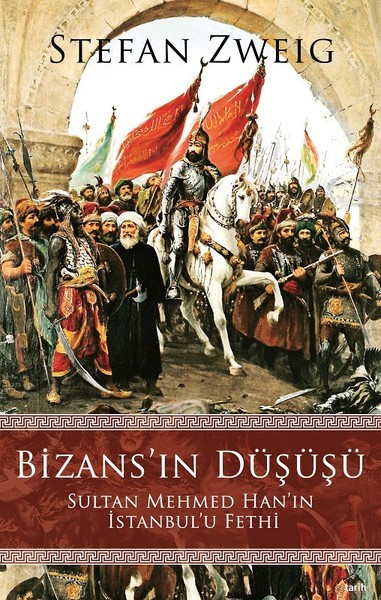
Bir çağı bitirip bir başka çağı açan ender olaylardan olan İstanbul'un fethi, gerçekleştiği günden bu yana hem tarihsel çalışmalara konu olmakta, hem dünya siyasetini etkilemekte, hem de efsaneler yaratmaktadır. Doğu Roma İmparatorluğu'nun topraklarına yayılan Osmanlı Devleti, bu fetihle gerçek bir imparatorluğa dönüşmüş ve kendisini yeni Roma İmparatorluğu olarak görmeye başlamıştır. Hem bu fikri kabullenen hem de Türkler'e hak ettikleri değeri vermek hususunda yetkin davranan yazar, derin bir öykü anlatma tutkusuyla bir tarihi panorama çizmeyi başarıyor. Fethi hazırlayan sürece kısaca değinen ama daha çok, batılı bir gözle kiliseler arasındaki kavgayı, güç çekişmelerini ve çatışmaları yorumlayan yazar, bu eserinde kendi dünyasının değerlerini aşkın bir tutumla ortaçağın değerlerine ışık tutmak için kullanıyor. Ünlü Alman yazar ve biyograf Stefan Zweig'ın eşsiz anlatımı ve konuya tarafsız yaklaşımıyla oluşmuş bu metin, fetih ve fethin Avrupalılar için öneminden bahseden bölümüyle de fikir dünyamıza katkı sağlıyor.
Author

Stefan Zweig was one of the world's most famous writers during the 1920s and 1930s, especially in the U.S., South America, and Europe. He produced novels, plays, biographies, and journalist pieces. Among his most famous works are Beware of Pity, Letter from an Unknown Woman, and Mary, Queen of Scotland and the Isles. He and his second wife committed suicide in 1942. Zweig studied in Austria, France, and Germany before settling in Salzburg in 1913. In 1934, driven into exile by the Nazis, he emigrated to England and then, in 1940, to Brazil by way of New York. Finding only growing loneliness and disillusionment in their new surroundings, he and his second wife committed suicide. Zweig's interest in psychology and the teachings of Sigmund Freud led to his most characteristic work, the subtle portrayal of character. Zweig's essays include studies of Honoré de Balzac, Charles Dickens, and Fyodor Dostoevsky (Drei Meister, 1920; Three Masters) and of Friedrich Hölderlin, Heinrich von Kleist, and Friedrich Nietzsche (Der Kampf mit dem Dämon, 1925; Master Builders). He achieved popularity with Sternstunden der Menschheit (1928; The Tide of Fortune), five historical portraits in miniature. He wrote full-scale, intuitive rather than objective, biographies of the French statesman Joseph Fouché (1929), Mary Stuart (1935), and others. His stories include those in Verwirrung der Gefühle (1925; Conflicts). He also wrote a psychological novel, Ungeduld des Herzens (1938; Beware of Pity), and translated works of Charles Baudelaire, Paul Verlaine, and Emile Verhaeren. Most recently, his works provided the inspiration for 2014 film The Grand Budapest Hotel.